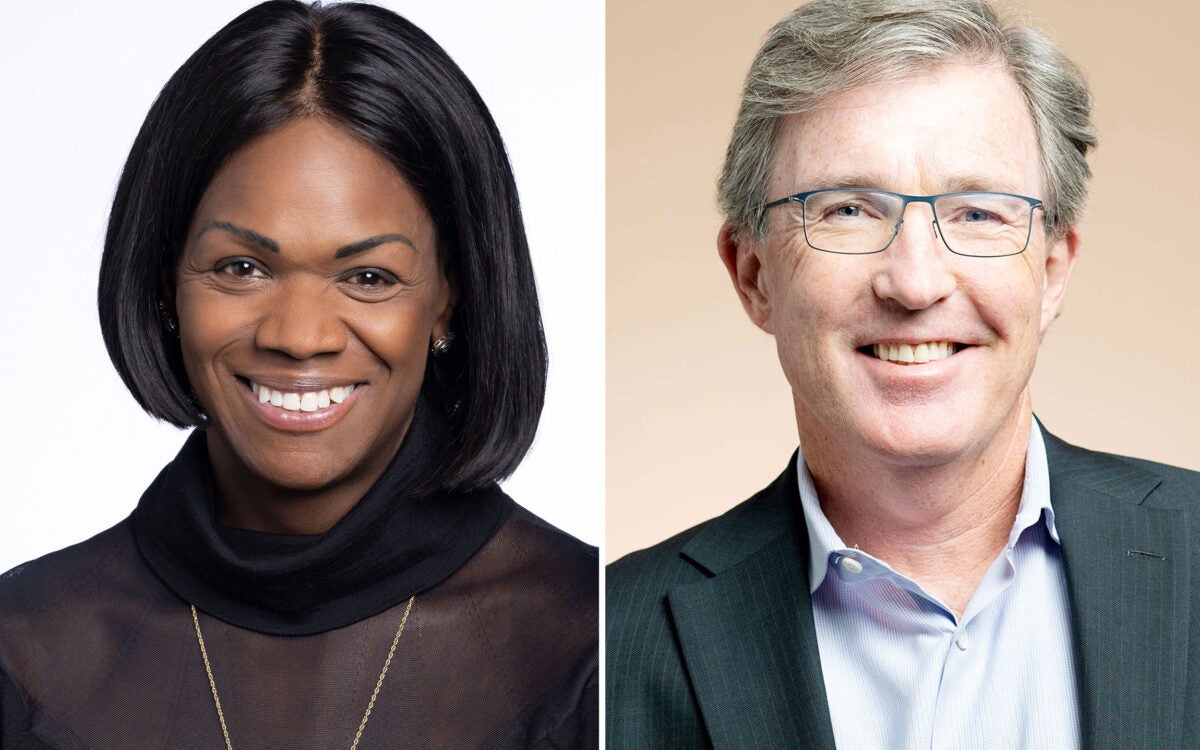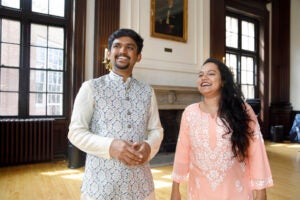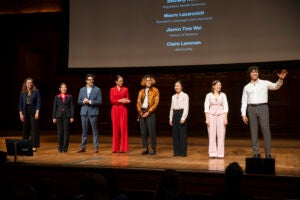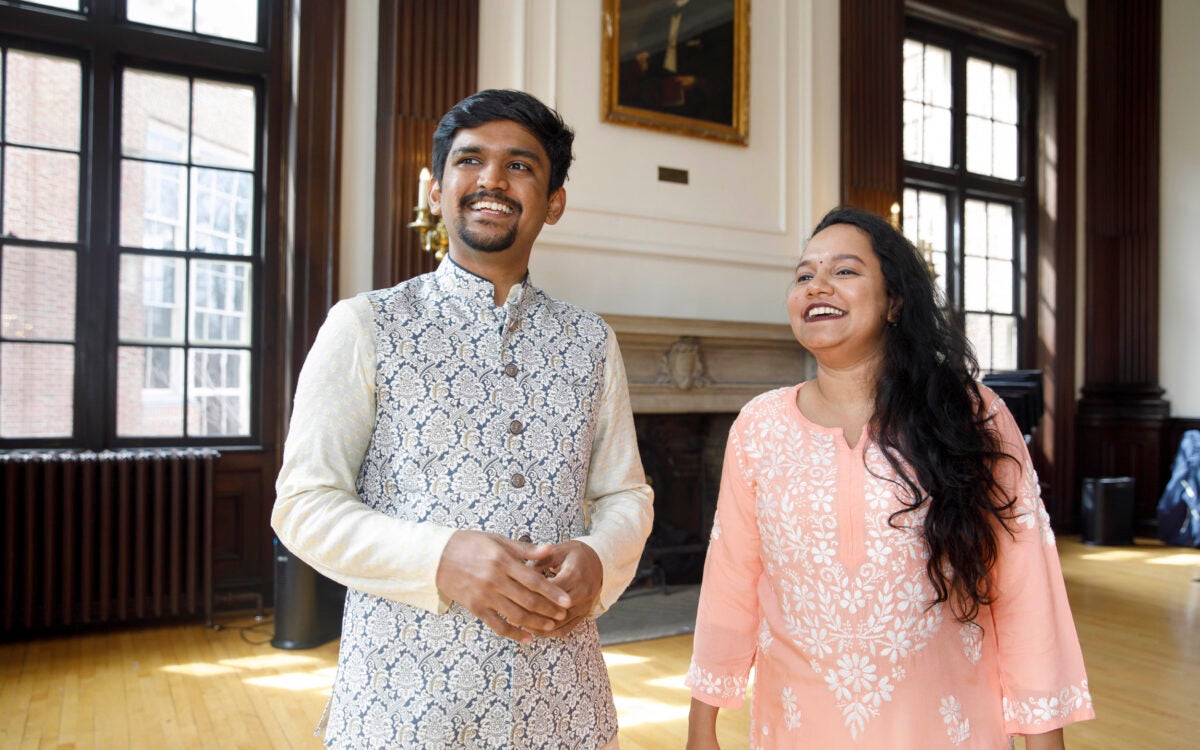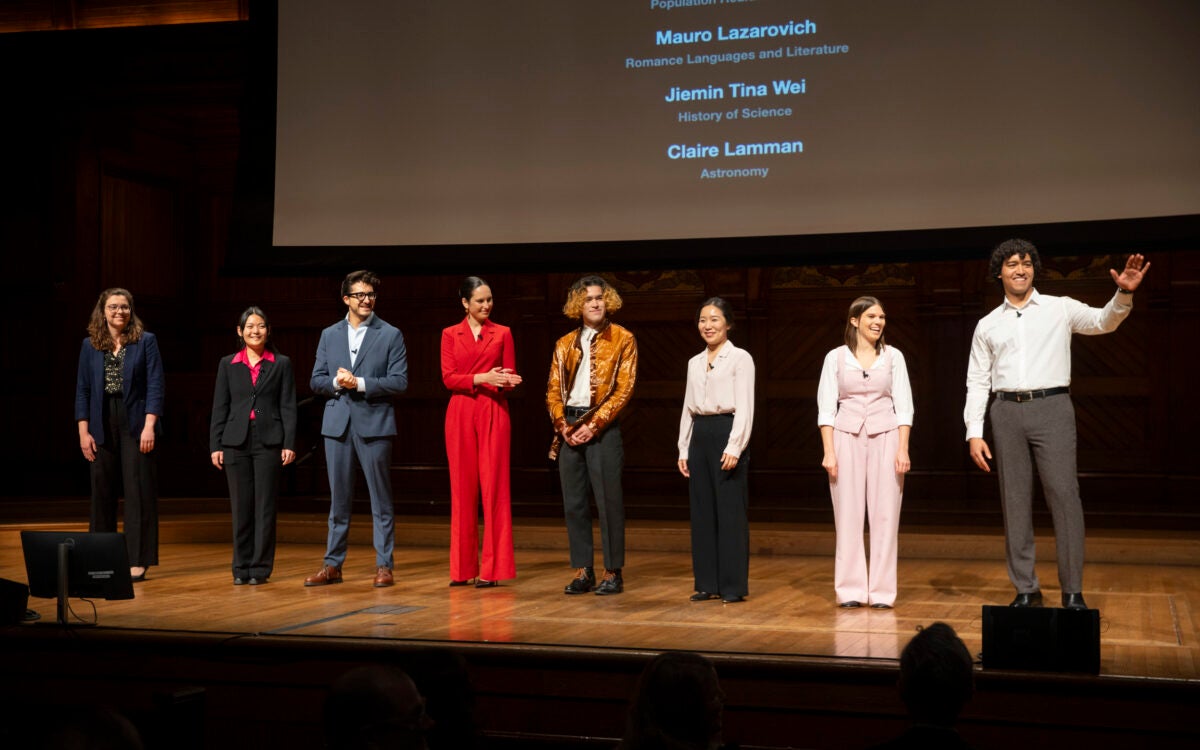HLS’s McCann shoots, scores with research on high school players entering NBA draft
Some high schoolers benefit by going pro
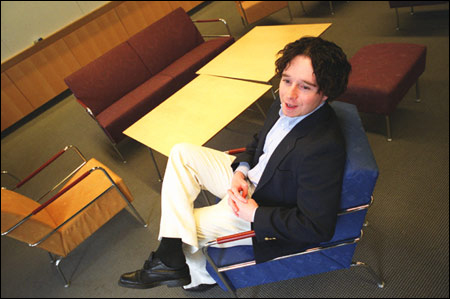
Harvard Law School visiting researcher Michael McCann knows a few things about the upcoming National Basketball Association (NBA) draft June 24. He’s quite certain that several of the top picks will be high school seniors taking the fast lane to a professional career by avoiding the traditional detour to college.
And he knows that their selection will be met with some public outcry that these players are too young and immature to turn pro, that they’re making a grave error in skipping college, that their hoop dreams will die and they’ll never catch the almighty buck they’re chasing.
McCann has the research to prove that these concerns are misguided. “In fact,
this group has done better than any other age group to enter the NBA,” says McCann. “It’s a myth that they tend to fail; in fact, the very opposite is true.” McCann’s research, published in the Virginia Sports and Entertainment Law Journal (spring 2004), counters what he calls the instincts and hunches of skeptics with statistical data: He found that players who enter the NBA directly from high school average more points, more rebounds, and more assists than the average NBA player.
What’s more, McCann found that entering the draft at age 18 gives these high school rookies a significant economic edge. Between 1995 and 2003, more than 80 percent of drafted high school players became or will become multimillionaires by the age of 21. Most players who skip college, he discovered, can earn as much as $100 million more over the course of their careers than had they attended college. NBA free agency rules, which give the drafting team the right to any first-round draft picks for five years before granting them lucrative free agent status, works in these younger players’ favor, as they become free agents much sooner than their college-graduate peers.
“A typical basketball player can only make money between the ages of 18 and 31,” says McCann. “So for every year that he is not earning money during that time, it’s roughly the equivalent of the rest of us not working for four or five years.”
Self-selection predicts success
McCann, a lifelong sports fan who began probing this issue while a student at the University of Virginia Law School, was surprised at the strength of this evidence. “Many people assume that you need to go to college to play sports in order to make it to the pros. This is an ingrained instinct in the minds of many sports fans,” he says. “I can see the common-sensical appeal to that, and if I hadn’t done the research, I may have ascribed to it.”
Looking closely at the issue, however, he found in place an economic system that almost guarantees successful outcomes for players and NBA teams. By declaring for the NBA draft immediately after high school and signing with an agent, players forfeit their eligibility to play Division One college basketball, which is the training ground for the vast majority of NBA players. “That’s a strong deterrent,” says McCann. “You’d better know that you’re going to be selected if you’re going to do that.”
For high school players who declare without signing with an agent, the disincentives to playing college ball remain high. The NBA team that selects them preserves their NBA rights – at a steep discount price – should they attend college instead. “It could cost him as much as $16 million on his first contract, because contract amounts are predetermined figures based entirely on when a player is selected within the first round,” says McCann. ” So he’s only going to declare if he is fully committed to going to the NBA immediately.”
This high-stakes gamble ensures that only the premier high school athletes choose professional basketball in lieu of college, McCann says, which in turn predicts their better-than-average records. “It’s a self-selective process,” he says. “There’s a fear that there’s this mass drove of high school athletes saying, ‘I want to be the next Michael Jordan,’ when in truth, it’s a very select group that actually pursues this.”
In a secondary line of inquiry in the study, McCann explored the legality of a potential unilateral ban on high school players by the NBA. “I would argue that such a ban would constitute a group boycott, and I think the law supports that,” says McCann. “There’s really only one employer [these players] can work for to reap the rewards of their unique talents, and that’s the NBA.”
It’s not just the money
McCann, who, as a member of Ohio State running back Maurice Clarett’s legal team, is tackling a similar issue in the National Football League (NFL), deftly counters naysayers.
“Some people think my argument is just that high school players should turn pro immediately because they’re going to make a lot of money. But … I have found no correlation between such players and maturity or getting in trouble with the law, or that high school players are somehow less prepared,” he says. “They’ve by and large been a very good group of citizens.”
To critics who point to the well-publicized cases of high school rookies who fail, McCann says, “Look closer.” First, he notes that these cases are likely overrepresented in the media. He points to one of the most visible poster boys for excluding high schoolers from the draft, former Detroit Piston Koreleone Young, who, as a second-round draft pick, played for the Pistons for just one season.
Young needs no pity party, says McCann. His year in the NBA netted him just under $300,000. “If he had never played another minute and gone to college, he would have had more money in the bank than any 20-year-old I knew in college,” McCann says. But Young did continue to play basketball, albeit in a far less lucrative European league. Still, says McCann, he brings home between $50,000 and $100,000 per year for a 30-hour week eight months of the year.
“He earns considerably more and works substantially less than does the average college graduate. If he’s a failure, then most college graduates would be considered failures,” says McCann. “This notion that they drift away and fail really hasn’t been supported.”
A troubling force at work?
While the NBA and now the NFL are flash points for this discussion of high school players turning pro, McCann notes that it’s hardly a new or unusual phenomenon. Sports like golf, tennis, figure skating, hockey – at 18, Boston Bruin Patrice Bergeron is the youngest player in the National Hockey League – have long embraced youthful competitors into their professional ranks, as has the entertainment industry.
Cautiously, McCann wonders if there’s a more insidious force at work. “There are all these professional children who are substantially younger than an 18-year-old basketball player. It does beg the question of why are people seemingly more troubled by, frankly, 18-year-old African American males who pursue the NBA?” he says, quickly adding that race is nearly impossible to confirm as an issue.
Still, the paternalistic instincts of those who insist that skipping college predicts doom are difficult to ignore, he says. “Are people uncomfortable with often inner-city and impoverished 18-year-old African-American men achieving wealth at such an early part of their lives?” he muses.
Intriguing though it may be, McCann will leave the race card on the table; the Clarett case and a new study, on the economics of nutritional labeling, now occupy his time.
And as he prepares to enter the LL.M. program at Harvard Law School, tacking more years onto his already lengthy stay in higher education, he denies any hypocrisy to his promotion of allowing high school students to skip college and turn pro. “For 99.9 percent of high school athletes, college is absolutely the right thing to do,” he insists. “It isn’t really judging college as an experience, or the merits of college. It’s judging a tiny fraction of players who have incentives to pursue the league as soon as possible.”
